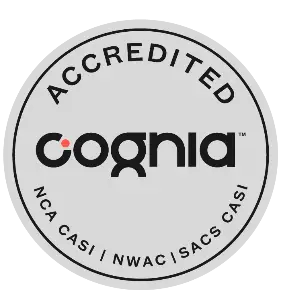POLICY NUMBER:
700.01
ADOPTED:
11.12.2024
Board Policy
- The Board of Education recognizes that Utah law provides that each public school, in consultation with its local school board, shall establish a school community council at each school building level. The Board recognizes the purposes of the school community councils are to involve parents or guardians in decision making at the school level, improve the quality of education of students, prudently expend School LAND Trust Program money and implement a component of the school’s teacher and student success plan (See, Policy—200.06—Teacher and Student Success Act), and increase public awareness of School LAND Trust and related policies and management of the State School Fund.
- The Board of Education recognizes its responsibility to review and approve the use of School LAND Trust Program money. As part of this responsibility, the president of the Board of Education shall ensure that the members of the Board are provided annual training on the School LAND Trust Program and its requirements.
- The primary focus of the school community council is to develop, approve, and assist in implementing School Improvement Plans and LAND Trust plans, which have a direct impact on the instruction of students and result in measureable increased academic achievement. The academic framework of the District provides guidance for individual School Improvement Plans.
- The Board of Education authorizes the Superintendent, his/her designee, and the District Administration to establish Administrative Regulations consistent with this policy and applicable law, subject to review and approval by the Board.
ADMINISTRATIVE REGULATION:
700.01-1
APPROVED:
11.12.2024
Authority of the Council - 700.01-1
- The authority of the school community council does not supersede the authority of the principal, the Superintendent, or the Board of Education.
- The Board of Education may ask school community councils for information to inform Board decisions and may ask school community councils to address local issues at the school community council level before bringing those issues to the Board.
- School community councils serve to advise and make recommendations to school and district administrators regarding school and district programs and plans. Parental participation is an essential component in school decision-making.
- The school community council is an advisory, not a policy-making, body.
- Issues outside the scope of the school community council’s authority shall include state laws, district policies, student discipline, curriculum, personnel, and any issue delegated to the Board or another educational organization. However, a principal or school administrator may not prohibit or discourage a school community council from discussing issues, or offering advice or recommendations regarding the school and its programs, the curriculum, or the community environment for students.
ADMINISTRATIVE REGULATION:
700.01-2
APPROVED:
11.12.2024
School Community Council Operation and Procedures - 700.01-2
- Canyons School District school community councils shall: adhere to composition, election, members terms, scheduled meetings, and comply with required reporting and notice requirements as outlined in state law, Utah Administrative Rules, and state and district training materials.
- The Superintendent or his/her designee is responsible to ensure School Administrators comply with training materials and checklists for school community council operations.
- Individual school community council bylaws may incorporate training materials or similar guidelines, provided such materials are reviewed and updated on an annual basis.
- Under the direction of the Board of Education, the Superintendent or his/her designee shall conduct annual training for the community councils of the District.
- Electronic meetings:
- School community councils may conduct electronic meetings to allow members to participate electronically in a school community council meeting provided an anchor location is at the school for council members and the public to participate in-person or monitor the meeting. (Utah Code §53G-7-1203).
- Electronic meetings must adhere to all other meeting requirements as outlined in state law (Utah Code §53G-7-1203).
- School community councils may conduct an emergency meeting in which notice requirements may be disregarded, if because of unforeseen circumstances it is necessary for a council to consider matters of emergency or urgent nature; and
- the council gives the best notice practicable of the time and place of the emergency meeting, and topics to be considered at the emergency meeting.
- An election for school community council members may be conducted by electronic means, provided the means and method of conducting the election has been approved by the District.
Exhibits
Forms
None
Document History
Revised – 11.12.2024. Policy-700.01 – School Community Council was revised to updated to allow for electronic elections.
Revised – 8.18.2020. Policy -700.01 – School Community Councils was revised to include language for implementing a component of the school’s teacher and student success plan as part of decision making when involving parents and prudently expending the School LAND Trust Program. The policy was also revised to include language to allow for school community council meetings to be conducted electronically, provided the public may participate in-person and or monitor the meeting.
Revised – 3.17.2015. Policy -700.01 – School Community Council requires revision to update language regarding the School LAND Trust Program and School Improvement Plans, and to include specific language for annual training for members of school community councils and the Board of Education. Specifically, the format and language of Policy-700.01 has been clarified to explain specific Board responsibilities and purposes of school community councils, and simplified to allow for reference and review of Utah State Office of Education (USOE) training materials and checklists. The revisions allow for the annual update of procedures and training materials for school community councils without substantive policy revision.
Adopted – 10.20.09.
This online presentation is an electronic representation of the Canyons School District’s currently adopted policy manual. It does not reflect updating activities in progress. The official, authoritative manual is available for inspection in the office of the Superintendent located at 9361 South 300 East Sandy, UT 84070.

